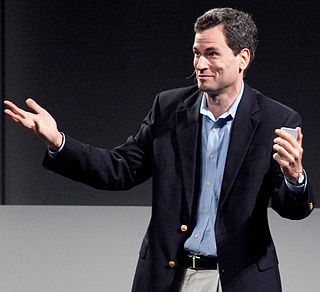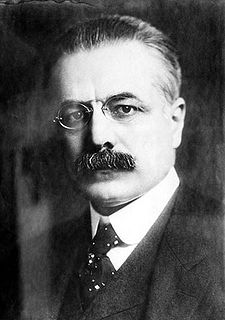A Quote by Jamais Cascio
When we developed written language, we significantly increased our functional memory and our ability to share insights and knowledge across time and space. The same thing happened with the invention of the printing press, the telegraph, and the radio.
Related Quotes
There is no doubt about it: we are judged by our language as much as (perhaps more than) we are judged by our appearance, our choice of associates, our behavior. Language communicates so much more than ideas; it reveals our intelligence, our knowledge of a topic, our creativity, our ability to think, our self-confidence, et cetera.
The funny thing is, nationalism only could have come about in Europe after the invention of printing. You could have this thing that was a book in a vernacular language, and you could imagine there were other readers of this book who you couldn't see, but they were a theoretical union of readers who all use the same language. That is kind of a prerequisite for a national fantasy. You need that thing, and it's a strange thing.
As was the case for Nobel's own invention of dynamite, the uses that are made of increased knowledge can serve both beneficial and potentially harmful ends. Increased knowledge clearly implies increased responsibility. We reject the notion advocated in some quarters that man should stop eating from the tree of knowledge, as if that were humanly possible.
This country has achieved its commercial and financial supremacy under a regime of private ownership. It conquered the wilderness, built our railroads, our factories, our public utilities, gave us the telegraph, the telephone, the electric light, the automobile, the airplane, the radio and a higher standard of living for all the people than obtains anywhere else in the world. No great invention ever came from a government-owned industry.
We have met our passion to be ambition to grow our market share significantly in North America. Motorola helps address two other priority markets for us - the acquisition has enabled us to become the No. 1 foreign vendor in Japan. It also gives us an increased market share with China Mobile in China.
Once a century, all of a certain kind of bamboo flower on the same day. Whether they are in Malaysia or in a greenhouse in Minnesota makes no difference, nor does the age or size of the plant. They flower. Some current of an inner language passes between them, through space and separation, in ways we cannot explain in our language. They are all, somehow, one plant, each with a share of communal knowledge.
Every major technological step forward has profoundly changed human society - that's how we know they're major, even if we don't always realise it at the time. Farming created cities. Writing, followed eventually by printing, vastly increased the preservation and transmission of cultural information across time and space.
The coming of the printing press must have seemed as if it would turn the world upside down in the way it spread and, above all, democratized knowledge. Provide you could pay and read, what was on the shelves in the new bookshops was yours for the taking. The speed with which printing presses and their operators fanned out across Europe is extraordinary. From the single Mainz press of 1457, it took only twenty-three years to establish presses in 110 towns: 50 in Italy, 30 in Germany, 9 in France, 8 in Spain, 8 in Holland, 4 in England, and so on.
Through our perceptual systems, we represent our surroundings, aiming to do so accurately, where the aiming is functional or teleological, rather than intentional. And the same goes for our functional beliefs. Through our judgments, however, we do intentionally, even consciously, attempt to get it right.





































